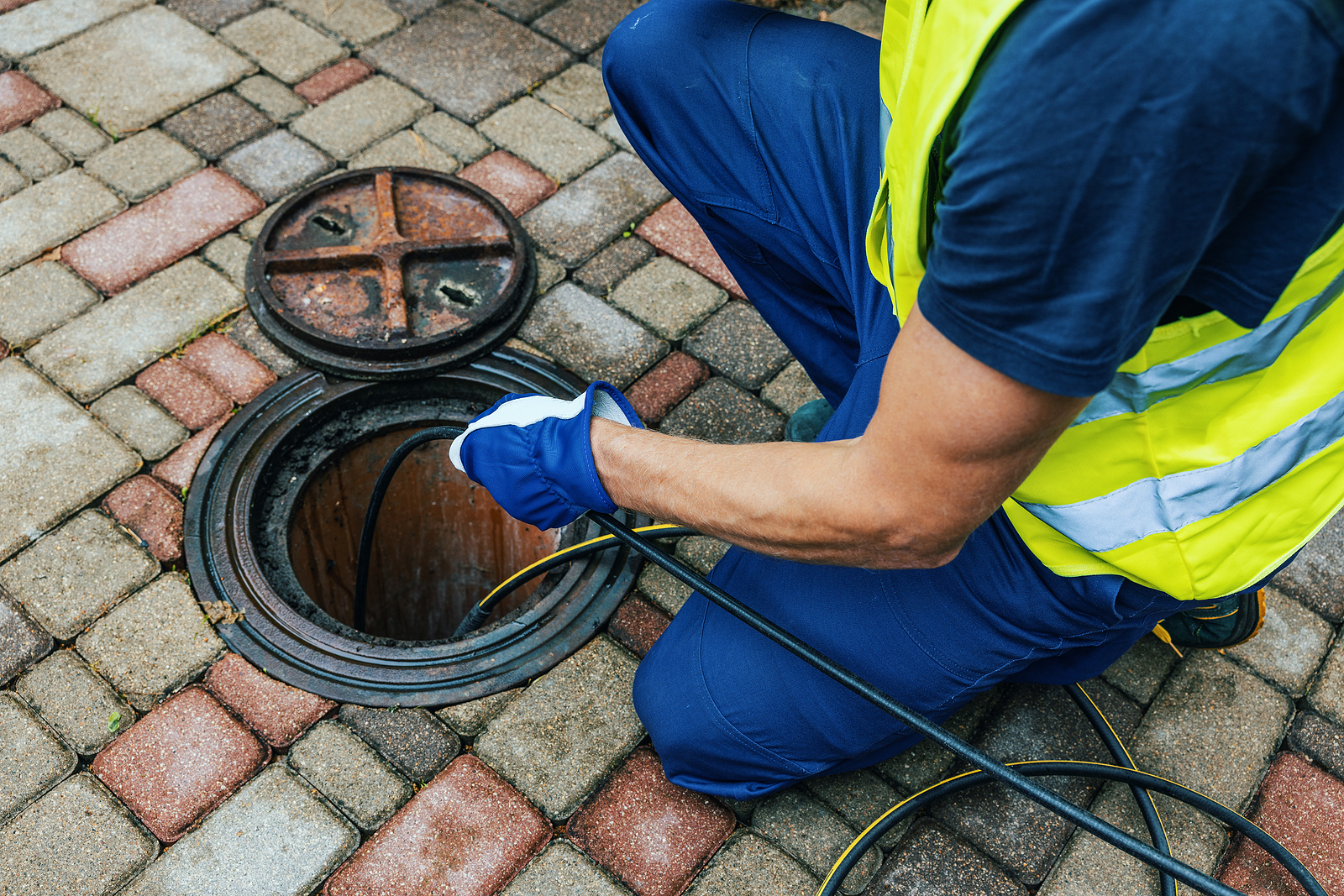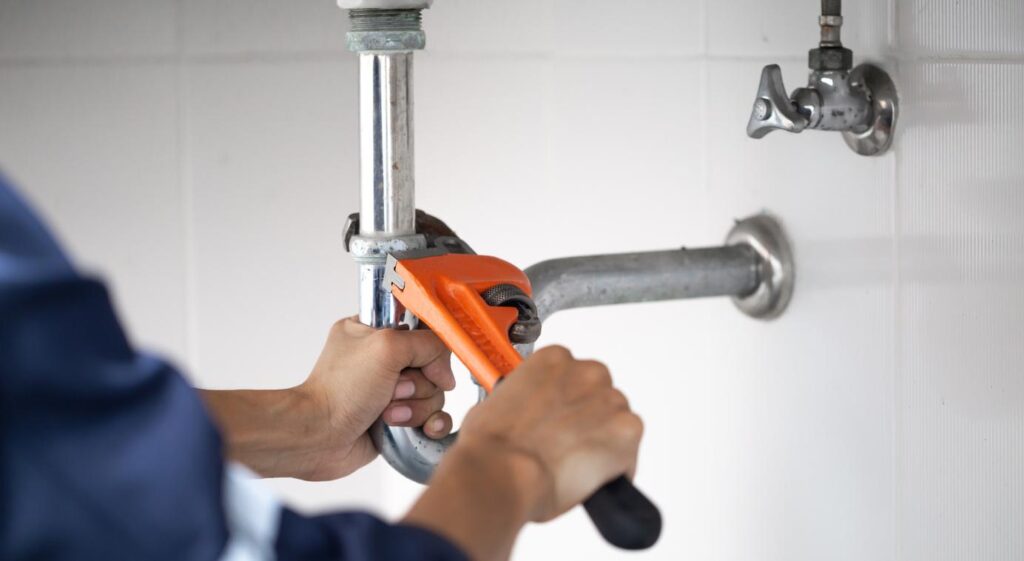Some homeowners struggled to pay PACE improvement loans. The coronavirus made it harder
It wasn’t until the work was done that Marcelino and Josefina Rodriguez said they learned the truth.
They had been signed up for a roughly $45,000 PACE home improvement loan at nearly 10% interest — even though they said a woman working with the contractor told them their new roof and water heater would be free through a government program.
The Rodriguezes contacted the authorities, but the nearly $4,500 annual bill came due anyway — a financial hit for the household of four who scraped by on less than $30,000 each year as garment workers paid by the piece.
If they didn’t pay, Marcelino, 67, and Josefina, 64, could lose the Pacoima home they’ve owned since 2001, one that provided them and their sons stability after years of bouncing from rental to rental. So to get by, they started selling food and one of their sons said he exhausted his savings.
It was working — until the coronavirus slashed their incomes.
“I don’t know how we are going to pay,” Marcelino Rodriguez said in Spanish through a translator. To lose the house “would destroy me.”
As the economy struggles to recover from coronavirus-induced damage, consumer groups are raising concerns of a coming foreclosure wave stemming from PACE home improvement loans.
For years, the industry has been dogged by allegations that some home improvement contractors exploit a loan approval process with weak safeguards to mislead people into financing they can’t afford, by telling them either that work would be free or that it would be less than it ultimately cost.
Consumer attorneys say they were seeing PACE-driven foreclosures even before the current crisis and now fear a surge as the recession cuts off economic lifelines for people already living on the edge.
“Our clients, who were barely holding on financially, are now falling off a cliff,” said Stephanie Carroll, an attorney with Public Counsel, which is representing the Rodriguezes.
Property Assessed Clean Energy, or PACE, loans first took off in the middle of last decade — the result of a private-public partnership created to finance energy- and water-efficient home improvements.
Various government authorities set up the programs, which use private money to help the environment and partner with private lenders to offer loans that are paid back as a line item on a homeowner’s property tax bill.
The private lenders, in turn, have relied on home improvement contractors to pitch their products and help sign people up for the special tax assessment financing. When consumers sign off that the job is done, the lenders then pay the contractors directly for the work.
The PACE industry says that overall the programs have been a success and stories of misrepresentation are the result of a few bad actors that lenders have worked to weed out.
According to PACENation, an industry trade group, PACE-funded projects in California stand to save, over the lifetime of the improvements, 19.3 billion gallons of water and result in greenhouse
gas savings equal to taking 1.5 million cars off the road for a year.
Colin Bishopp, the group’s executive director, said that victims of fraud should be “made whole” and his group supports efforts to help borrowers during the current economic crisis. But he said consumer groups are overstating the risk of foreclosure.
“The overwhelming number of homeowners who used PACE to make an upgrade to their homes from the very beginning had a positive experience,” he said.
Consumer groups, however, say that the problems are more widespread than the industry acknowledges and that they worry too many people with PACE loans have been set up for failure.
Before 2018, PACE loan eligibility was largely based on home equity with no required analysis of whether the applicant had the income to repay the loan — a step mandated for mortgage loans.
Contractors could use lender systems to look up exactly how much a homeowner qualified for, allowing them to pitch products that would strip all available equity. Homeowners could then sign up on tablet computers that contractors handed to them and borrowers didn’t always need to speak with lenders to confirm they understood their financing.
Complaints were particularly high among seniors and people who didn’t speak English. Some homeowners alleged contractors didn’t show them all the documents and even set up fake email addresses where loan documents would be sent and then forged.
Bishopp said complaints over financing have declined since a package of state laws took effect in 2018, including the one that required lenders to conduct an analysis of ability to repay.
The laws, which received support from some big lenders, required lenders to call all borrowers to confirm they understood the financing and barred lenders from revealing to contractors the total amount of financing homeowners qualified for.
But nearly 145,000 loans worth $3.4 billion were outstanding at the end of 2017, before the laws took effect, according to state records. And consumer groups say the rules are still too lax, pointing to allegations of fraud such as those made by the Rodriguezes, who received their loan in 2019.
Los Angeles County cited the difficulty of contractor oversight as one reason it recently stopped allowing new loans through its program, although PACE financing is still available in L.A. County through statewide programs.
“Any time you don’t have an ability to repay analysis, there is a greater chance people will be in loans that are unaffordable,” said Tara Twomey, an attorney with the National Consumer Law Center. “What the PACE assessments take away is any cushion or breathing space to handle any setback.”
At the California Statewide Communities Development Authority, one of the state’s big PACE program sponsors, it’s too early to know the effect that earlier underwriting standards will have on borrowers’ ability to pay during the downturn, Managing Director James Hamill said. But he said his organization is working with other statewide programs to help homeowners throug
h today’s “unprecedented times.”
He didn’t have specifics, but he said that repayment plans are likely options and that he hoped to announce more this summer.
“We have seen this coming with the outbreak,” Hamill said. “We do not want to foreclose on anybody.”
The PACE program, through which Marcelino and Josefina Rodriguez received a heat-blocking roof and an energy-saving water heater, was set up by the California Statewide Communities Development Authority.
Hamill declined to comment on the Rodriguezes’ situation.
The Los Angeles County Board of Supervisors has expressed interest in allowing people who still have PACE loans through its program to defer payments for a year, although that could prove difficult. The loans have been packaged into securities and sold off to investors and, according to a recent report from the county’s tax collector, state law requires PACE assessments to be “collected at the same time and manner as county property taxes.”
The extent of potential hardship PACE borrowers are facing is difficult to gauge because of the financing’s complicated nature.
Bishopp of PACENation said available delinquency and foreclosure data indicate that despite “horrendous” cases of fraud, lenders didn’t approve hordes of unaffordable loans that are now prime for default.
For example, as of October, investors in PACE loans had started foreclosure proceedings on only nine assessments since the programs started, representing 0.004% of PACE loans in California, while the overall delinquency rate for PACE loans stood at 1.73%, according to the trade group.
But data from L.A. County indicate PACE delinquency had inched up before the pandemic. And consumer attorneys say they were seeing PACE-driven delinquencies and foreclosures that wouldn’t show up in industry or county data.
In these cases, attorneys said, people who have an underlying mortgage took on an unaffordable PACE assessment and have seen their mortgage servicer pay their PACE assessment and then foreclose themselves.
In some cases, homeowners originally paid their property taxes through a mortgage escrow account and fell behind on their mortgage after the servicer adjusted their payment to reflect their new PACE assessment. In other cases, homeowners paid their property taxes separately, but the servicer stepped in anyway.
Stacey Tutt, director of UC Irvine’s Consumer Law Clinic, said that any government help needs to address such instances and that since the fall of 2018 her clinic has handled eight cases in which mortgage servicers initiated foreclosures because of PACE hardships, a number she called significant given the limited capacity of the clinic.
Public Counsel, meanwhile, took on 76 new clients last year who had fallen behind on their mortgages or were about to because of PACE hardships, up from 42 in 2018, according to attorney Nisha Kashyap.
Going forward, mortgage forbearance programs, created to provide relief from the pandemic’s economic strains, stand to give some borrowers additional time to regain income or sell their homes.
Marcelino and Josefina Rodriguez haven’t received a foreclosure notice but have an underlying mortgage and fear they’ll eventually lose their home.
The couple said their nightmare started last year when a woman who gave her name as Kelly showed up at their door, asked for Marcelino by name and said there was a problem with their water heater.
The Rodriguezes said the woman told them a free government program would replace it and they trusted her because she knew Marcelino’s name and they assumed she was with the nonprofit organization that previously provided them with other free home improvements.
When the woman and workers showed up to replace their water heater, Marcelino Rodriguez, said the workers damaged their roof and the woman said the government program could replace that for free as well.
Their PACE loan documents, which the Rodriguezes say have their forged electronic signatures, show a for-profit business named Eco Technology was the contractor that installed the water heater and roof. And the last time Kelly visited their house, they said, she was wearing an Eco Technology T-shirt.
The Rodriguezes said that after their work was done a neighbor who used the same contractor warned them he had been signed up for a loan without his permission.
Marcelino’s son, Daniel, said he then called the lender, PACE Funding Group, and discovered that his parents also had a loan through the company — even though they said they never signed any documents, nor had any phone calls with the lender to confirm financing.
The California Department of Business Oversight recently barred Eco Technology from working with lenders to offer PACE loans, alleging the Encino company falsely told multiple homeowners they would get free home improvements through a government program and then, to make deals go through, forged customer signatures and impersonated homeowners on calls with lenders.
It was the first time the department had made such a move since the 2018 reforms gave it the authority, but the allegations mirror complaints PACE Funding made in a 2019 lawsuit against Eco Technology, as well as allegations homeowners have made for years against other contractors.
Eco Technology, through its attorneys at Plumtree & Associates, denied the allegations and said the company didn’t forge the Rodriguezes’ signatures or commit fraud in any case.
Nick Brunner of Plumtree & Associates said Eco Technology also denied that anyone from the company told the Rodriguezes they would get work done for free.
“If somebody did go to the Rodriguezes’ home and make these representations, it was not ever condoned by Eco, it was not ever supported by Eco,” he said.
According to their bank statement from right before the Rodriguezes received their PACE loan in 2019, the home improvement financing and their mortgage could be expected to have taken up nearly 70% of their gross income, well above recommended levels.
In an email, PACE Funding Group’s chief compliance officer, Ryan Griffin, declined to comment on the Rodriguezes’ situation, citing PACE Funding’s lawsuit against Eco Technology.
But he said that PACE Funding is “investigating and responding” to each homeowner complaint involving Eco Technology “in an attempt to help facilitate a fair outcome to homeowners.”
When asked if someone with the Rodriguezes’ debt-to-income ratio would qualify for a PACE assessment through the company, Griffin said it was “very unlikely.” He didn’t respond to follow-up questions asking what sort of income documentation PACE Funding requires before approving a loan and whether it conducts independent checks to verify that income documentation is accurate.
Public Counsel’s Kashyap, who is representing the Rodriguezes, said PACE lenders are required to verify a homeowner’s income and the fact her clients received a loan suggests something “went wrong in the approval process.”
“This loan should not have been approved,” she said.
In the meantime, Daniel Rodriguez is worried about his father’s health. Not only is Marcelino diabetic and at greater risk for serious complications if he contracted COVID-19, he’s also not sleeping, worried that the house he’s worked so hard for will be lost.
“It’s been a year of hell,” Daniel Rodriguez said. “The damage that this stress can cause, that’s what worries me the most.”
Marcelino Rodriguez called what has happened to his family an injustice: “They always told me everything was going to be free.”
For the record:
9:12 AM, Jun. 29, 2020: An earlier version of this post stated that, according to industry trade group PACENation, PACE-funded projects in California stood to save, over the lifetime of the improvements, 19.3 million gallons of water. The correct amount is 19.3 billion gallons of water.








